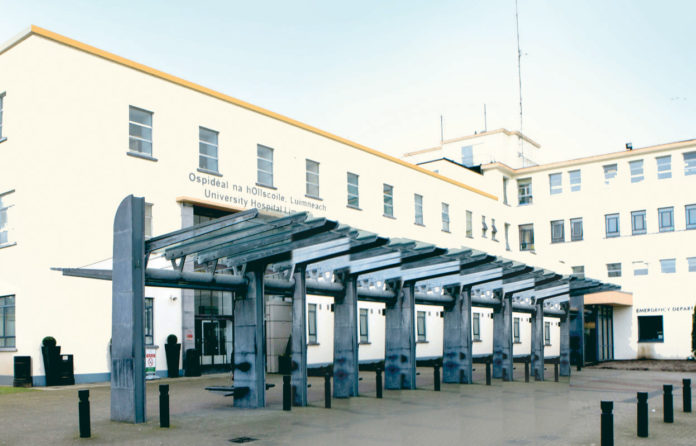
NONE of the patients who contracted the superbug CPE in University Hospital Limerick died as a direct result of the infection, a new report has concluded.
However the review into the deaths of patients infected with CPE has determined that it could have been a factor in eight of the deaths.
The report follows an independent investigation by UK consultant microbiologist, Dr Robert Spencer into the deaths of 74 patients in whom CPE had been detected. It overruled the findings of a previous internal hospital investigation which found that CPE could have been the cause of three deaths at the hospital.
At a press conference in UHL this week, Professor Paul Burke said that all of the patients in whom CPE had been detected ”had many other clinical conditions.” such as cancer or coronary disease making CPE just one of the contributing factors in their deaths.
“In our internal review, the question we asked was whether death could be said to have been attributable to CPE and the answer in three cases was yes. We commissioned an independent report to get a more objective perspective. It was Dr Spencer’s finding that CPE was not the main cause of death and we believe this is reasonable conclusion”.
In June 2016, a UHL whistleblower wrote to Health Minister Simon Harris calling for an investigation of the management of antibiotic-resistant drugs at the hospital. In July 2017, the Limerick City Coroner wrote to management to say that a whistleblower had asked him to investigate 36 deaths at the hospital between 2009 and 2017.
Seven of the eight cases in which the subsequent investigation determined that CPE was a factor in the patient’s deaths were on the list sent to the coroner by the whistleblower.
UL Hospitals Group chief executive Professor Colette Cowan said that all but one of the families of the eight people had been contacted and given copies of the report. One family had not responded to calls or registered letters, she said.
“We have to remember that behind each of these figures is a grieving family and we must be sensitive to that”.
A person can be colonised with CPE without any harmful results unless it becomes a blood-borne infection.
Prof Cowan said that the hospital saw an outbreak of CPE in 2011 and since then, they have invested heavily in control measures, staff training, equipment and infrastructure.
€4.5 million was spent in 2015 alone on measures to control the spread of the superbug and there has been no bloodstream infection with CPE detected at the hospital since June 2105.
Prof Cowan said the hospital now performs up to 1,000 screening checks a month.
The report states that over the period of the review (February 2009 to May 2017) there were 196 new CPE detections out of 41,000 screenings.
Professor Martin Cormican, the National Lead for Healthcare Associated Infections, said it was important for people who tested positive for the superbug to understand that they were not a danger to anyone outside a hospital setting.









